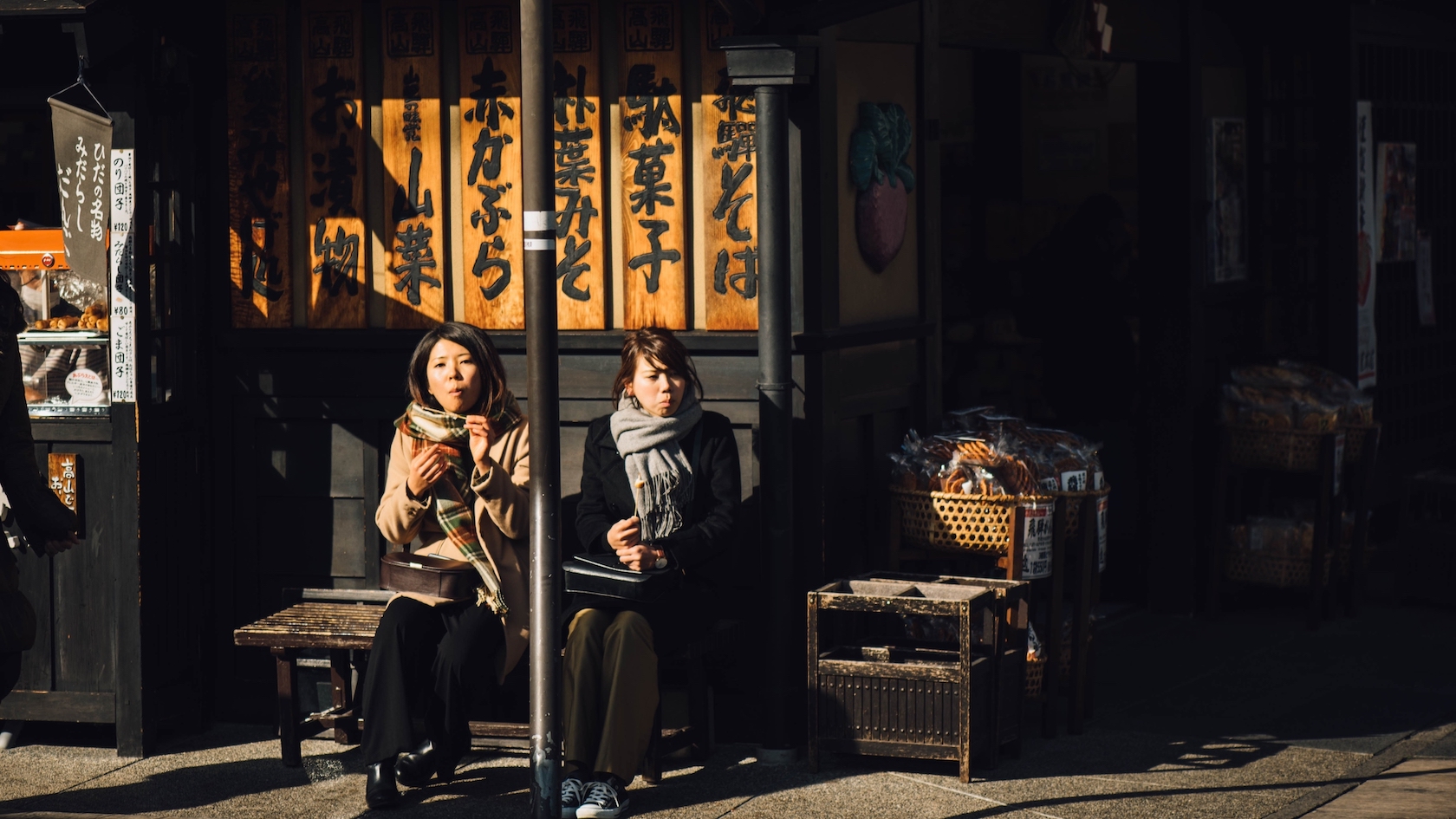Studying in Japan: 5 Vital Tips for Women

Studying in Japan is the dream. I took up a Bachelor of Science in International Studies and majored in Japanese Language and Studies in college, so Japan had really been my dream country. After graduating, I immediately started working as a translator in a Japanese company in my hometown to enhance my skills. Back then, it was the closest I can get to Japan. But when I got the opportunity to study in Japan, I grabbed the chance and watched the country’s history and culture unfold before me.
Table of contents
5 Essential Tips for Women Studying in Japan

Photo by Guus Baggermans on Unsplash.
Visiting Japan is one thing, but staying and studying there is another. I have always known how historically and culturally rich Japan is, and experiencing that richness first-hand was something I had been looking forward to. Through our company’s overseas studies program, I went to Japan to study for about six months. There was the foreign student life, and I learned a thing or two about the Japanese language and culture.
Studying at the International University of Health and Welfare brought me to Ōtawara City, Tochigi Prefecture. The area is a rural community with some big factories around, which tourists often miss as it is less popular compared to other regions of Japan. I’m sure I would’ve lived a different student life if I was assigned to denser areas such as Tokyo or Osaka. Surprisingly, Ōtawara had its own charm. Ōtawara’s culture shaped my entire foreign student experience.
What is it like to be an international student in Japan? How is life there? Personally, my experience in Japan as a young woman was unique. Most of the rules and tips for living in Japan as a student applies to everyone, such as getting your own Suica IC card or keeping quiet in public places. However, I can recall some things that could help you as a female international student. Heads up! You’re about to have a great, once-in-a-lifetime experience!
Monitor Your Expenses

Photo by Jezael Melgoza on Unsplash.
One of the many things you will have to adjust to as a foreign student in Japan is the currency. It would be scary to go bankrupt in a foreign country! When I studied in Japan, I also took part-time jobs to provide for myself. And in my short stay there, I learned how vital monitoring my expenses and spending wisely can be.
Before traveling to Japan, I always thought that 100-yen shops would be my best friend. Yes, you can find affordable stuff there, but other shops sell them for lower prices. Living a foreign student life in Japan taught me to be careful with the tags on the things I buy. In Japan, you could find more than 1 price tag on an item: the original price and the one with VAT. Take a good look before you bring it to the cashier!
Cooking your own meals is also more practical than eating out. Convenience stores have budget meals, but if you want to save more, you could make your own instead. Another budget tip is to bring clothes from home… but not your whole closet!
I understand that living in another country with just a few clothes sounds a bit appalling. Still, you’d do yourself a favor if you’d only bring essentials. Japan has four seasons, and you’d need different clothing for each. To be more practical, you can check out the many second-hand stores!
I was in Japan during the winter season, so I brought a few jackets and sweaters with me. I thought they were enough to keep me warm, but I thought wrong! That’s when I learned that buying clothes from second-hand stores is a good idea because there are no better clothes suitable for Japan’s weather than the clothes made in Japan. If you don’t mind using pre-loved garments, check out these shops that sell way cheaper than the malls to save money.
There are many practical ways to live as a foreign student in Japan, and it’s a challenge that you can easily control. Just keep in mind that everything you need is there, and they could be available at more affordable prices.
Mind Your Hygiene
“What are sanitary pads like in Japan?” This question must have passed through your mind. It did in mine! As an international student, it’s safer to assume that things will be different from home. When I asked about sanitary pads or napkins, I had the impression that it’s different from where I am. In my country, using tampons isn’t that common, so I had to make sure that I will have access to my period needs when I get there. Who would want to bring a year’s worth of sanitary pads, right?
You can find seiri shoriyou hin (生理処理用品) or menstrual hygiene products in drug stores, supermarkets, public restrooms, home centers, and convenience stores. Menstrual pads are available in various sizes, depending on your flow. You could also opt for tampons and menstrual cups!
I remember buying a pack in a convenience store, and I got a black plastic bag in case I was conscious of other people seeing it. You could also purchase cute wastebaskets for disposing of your menstrual pads! Remember that Japan is very particular with waste disposal, so ask around about waste sorting and collection schedules.
Public comfort rooms in Japan also amazed me. The tissue papers in Japan’s restrooms are made to disintegrate in water, so you can freely throw them in the toilet bowl. Take note that you cannot do the same with tissue papers from outside. There’s also a separate wastebasket for sanitary pads, so make sure you wrap yours up properly before throwing it. Take part in keeping Japan clean!
Experience The Magic of Natural Hot Springs

Photo from Wikimedia Commons.
Anyone who goes to Japan must find time to visit an onsen (温泉) or hot spring resort for a full Japan experience. Imagine plunging into a hot spring and relaxing in complete peace. Just thinking about it already makes me feel calm!
With over 30,000 hot springs across some 3,000 onsen in Japan, you can get your long-overdue break. Understandably, most foreigners find it awkward to bathe in public completely naked. Still, it’s one distinct activity in the Japanese culture. A day in an onsen truly completed my foreign student experience.
Just like you, I had a few concerns. I was there during the winter, so I didn’t think much about shaving my underarms. I had to wear sleeves all the time anyway. I expressed my worries to a Japanese friend, and she immediately told me that it didn’t matter.
When you’re in an onsen, you are free to be yourself. Others won’t mind what your body looks like! If ever you’re on your period, some women believe you can still try just as long as you use tampons. Others, including doctors, wouldn’t recommend it, though. For your own experience, consult with Japanese natives before you go there.
Be careful to avoid other women as well. You might be taken aback at first if bathing naked with other people is new to you, but resist the urge to stare. Everyone else will also give you your own space! Remember to wash up before dipping into the onsen, and keep your voice low. It’s a perfect time to bond with your female friends, so make the most out of it!
Go Out and Socialize

Photo by ChutterSnap on Unsplash.
I also had a fear of communicating in Japanese when I first arrived there. I’m sure most non-native Japanese speakers feel this too! Years and years of learning how to write and speak in Japanese still made me feel hesitant to use my skills.
What if I won’t understand their answer? What if I don’t know the Japanese word for something? For me, I just reminded myself that I was there to hone my skills, and speaking in Japanese even if it’s not my mother tongue was required.
I noticed that people in Japan don’t usually approach foreigners first. They’re not rude; they’re just considerate that you might be unable to understand Japanese! To make friends, have the confidence to speak to them first.
And once they know that you can understand Japanese, they will gladly accommodate and address your concerns. When you make native Japanese friends, you will be able to gain a deeper understanding of Japan’s culture. The rest of your foreign student life would be more comfortable.
Your experiences in Japan will be 100% better when you share them with friends. You get to enjoy your time with other people, and you get to exercise your language skills! I also spent about 2 weeks in Tokyo. If it weren’t for my friend, I could’ve spent more money on accommodation and other expenses.
I also made new friends from the part-time jobs I took while studying. Spending time with them taught me more about nuances that aren’t usually discussed in school. My whole stay in Japan became even more memorable and real because of them.
Nobody knows Japan better than the Japanese themselves. Even at the university you’re in, communicating with your teachers, classmates, and the staff will help you a lot. It’s a significant part of your adjustment to your foreign student life, but you must be committed to making your move. Don’t be afraid to ask questions, clarify things, and open up.
Be Kind to Yourself

Photo by Antonina Bukowska on Unsplash.
Lastly, I want you to remember that you don’t know everything about Japan yet, and you don’t have to. So if you get on a bus and pay right away, when you have to do it on your stop instead (just like what I did!), don’t wallow so much on the embarrassment. You’re a foreigner, and you will need time to learn how things work in Japan!
I have countless embarrassing moments as a foreign student in Japan. I even tried commuting with an insufficient balance in my IC card! Most of the time, I didn’t know what to do. It was my first time, and I was there to study. Basically, I had to make as many mistakes as I could to adjust to the culture.
Had I been too hard on myself, I wouldn’t have finished my courses at the university. It was a challenge to tell myself, “It’s okay,” after pressing the wrong buttons on the toilet! But studying in Japan will require you to get over your mistakes and to commit to doing better.
This applies to your studies as well. The teaching styles in Japan could be different from home. And since you’re studying the Japanese language in Japan, you will be way more exposed to the language compared to other international schools. So if you feel frustrated about your progress, take a break. Maintain composure and always keep on trying. You’ve been dreaming of studying in Japan, and now you’re there!
Conclusion
You and I could have different experiences as women foreign students in Japan. You could read all you can about life in Japan, but getting first-hand experience is incomparable. Everything you need, you will find in Japan, and you will have to learn how to take control of your situation. Monitor your expenses, ask around and learn, and give yourself some credit. All these while studying! With commitment and enough guidance, you’ll surely ace your foreign student life in Japan. You got this, girl!
Motto Japan, the community platform to support foreigners with the foundation for life in Japan, including Japanese study, job opportunities, and housing service. Motto Japan Media will provide a wide variety of information for Japanese fans all over the world, to create a cross-cultural environment and enrich the life of foreign residents in Japan!














Leave a Reply